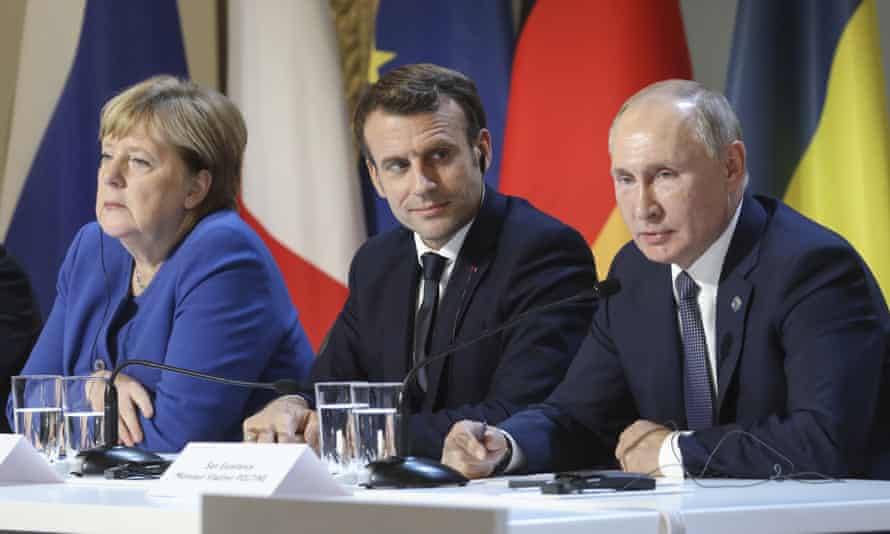France and Germany have suggested inviting Vladimir Putin to a summit with the EU as part of a broader reset of the bloc’s relations with Russia.
The proposal from Emmanuel Macron and Angela Merkel comes after Joe Biden’s Geneva summit with the Russian president, and supporters of the idea argue that European leaders can deliver the same direct messages about Russian behaviour while keeping the door open to compromise and cooperation.
Critics of closer ties to the Kremlin are concerned that it would reward Putin at a time when he is once more building up pressure on Ukraine, and Russia has been accused of stepping up cyber-attacks on the US and its allies. It came on a day when Russian forces claimed to have fired warning shots at a British warship in the Black Sea close to Russian-occupied Crimea, a claim that the UK denied.
The EU has not held a summit with Putin since the annexation of Crimea in 2014, and has imposed several layers of sanctions on Russia.
“We need to have a discussion about how to get away from this negative spiral … but we need to advance united,” Reuters news agency quoted one senior EU diplomat as saying, while noting that there could be opposition to a summit from Baltic member states.
It was not immediately clear whether the proposal would involve all 27 European leaders or only the EU’s chief executive, Ursula von der Leyen, and its chairman, Charles Michel.
Biden and Putin met for three hours in Geneva on 16 June, both saying the meeting was worthwhile while airing grievances against each other’s countries. They agreed their officials would meet more often as part of a strategic stability dialogue, and explore the possibility of working on a new arms control agreement.
“It seems to me that given that Biden has just met Putin, and was very frank to him, it’s hard to say that it’s a bad idea to even meet,” said Constanze Stelzenmueller, a senior fellow at the Brookings Institution.
“I think if it’s done the way Biden did, I don’t have an issue with it because I think there needs to be direct messaging, because the Russians are going to otherwise keep misreading us.”
The Franco-German proposal was unveiled as the US secretary of state, Tony Blinken, began a tour of European capitals, aimed at more closely knitting together US-EU policy.
Blinken was in Berlin on Wednesday to meet Merkel to discuss common policy on Libya and other issues. He is due to travel on to Paris for a meeting with Macron and then to Rome.

